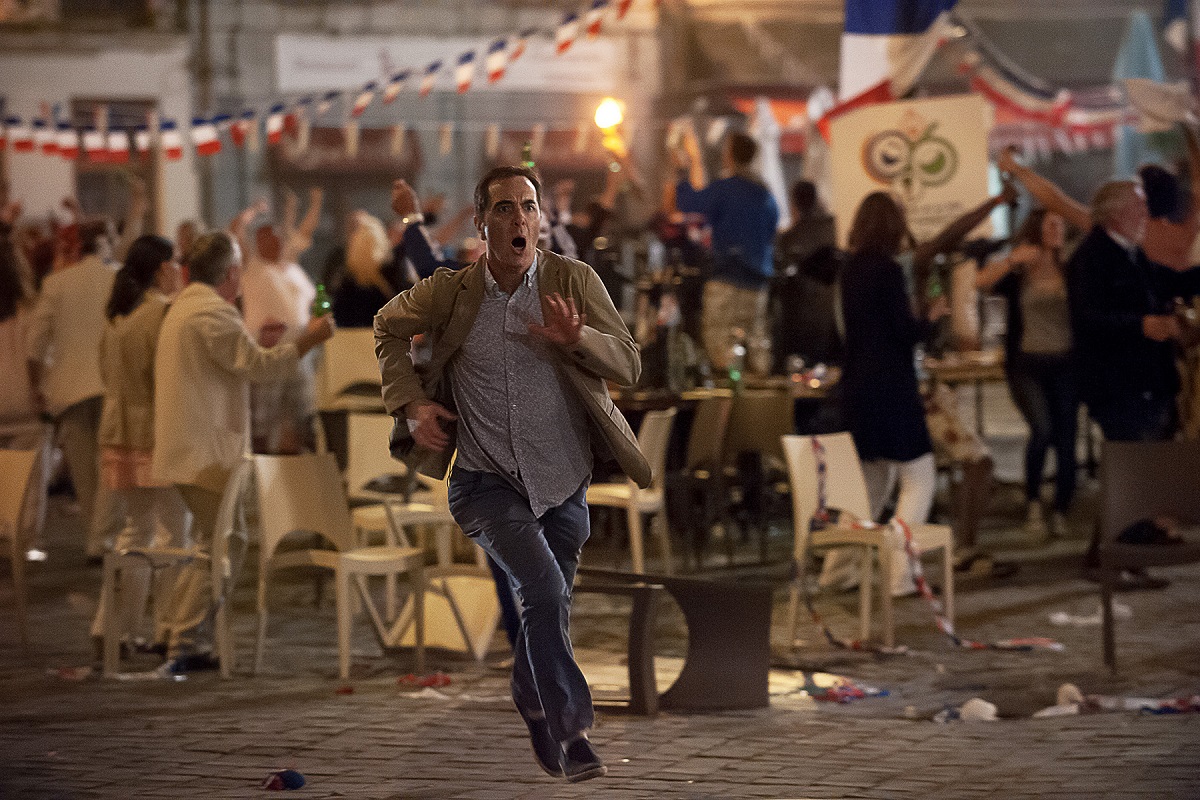Starz’s 8-part mini-series “The Missing,” imported from its
BBC original broadcast that began last month, is the best original programming
the increasingly interesting cable network has yet offered. It is a riveting,
heartbreaking, fascinating drama, taking a subject that could easily have been
turned into a Lifetime TV Movie melodrama and making it real with its subtle,
character-driven grace notes and the breakneck speed of its elaborate plotting.
Like the stellar first season of AMC’s “The Killing,” “The Missing” is more
about the ripple effect of unimaginable crime than the actual crime itself. It
is a program that only gets more interesting at it goes along, enriched by
great performances and echoes of fictional works like “Prisoners” and “The Vanishing,”
along with real-life tragedies like the disappearance of Madeline McCann. There
are a few beats that feel overplayed and emotions that are too distinctly
underlined, but this is yet another incredibly watchable show in a year that
has been surprisingly full of them. Last year’s great mystery was “Broadchurch”;
this year’s could be “The Missing.” I know I won’t give up until I know what
happened to Oliver Hughes.
That’s the name of the young man, five years old, who we see
on holiday with his father Tony (James Nesbitt) and mother Emily (Frances O’Connor)
in France in 2006. After their car breaks down, they end up in a small French
village on the eve of a World Cup victory. Tony and his son go swimming late at
night, stopping into a bar to get the boy a drink on the way back to their
hotel. As the crowd jumps and cheers, Oliver disappears. Naturally, Tony enters
immediate panic, searching the area, and eventually the whole town gets
involved in the search. He’s gone. Without a trace.

“The Missing” takes place in two timelines, often made more
interesting by the missing pieces between the two. In intercut narratives, we
see the days after the disappearance, as suspects come to light and it becomes
clearer that Oliver may never be found and that something truly horrendous
happened to him. Two local cops, expertly played by Emilie Dequenne and Said
Taghmaoui, seem to be in over their heads, while an experienced investigator
named Baptiste (the great Tcheky Karyo) is drawn into a case that will haunt
him the rest of his days.
As much of the action of the piece, maybe even more, takes
place in 2014. Tony, now looking like a ghost of his former self, is still
looking. He’s back in that same room with the still-broken TV. He’s no longer
married. In fact, Emily has remarried a man (Jason Flemyng) closely involved
with the case in 2006. In 2014, Tony thinks he has finally found a vital clue
to reopen the closed case. And, of course, he has, pushing the entire
investigation in a new direction, and bringing Baptiste out of retirement.
The dual narratives of “The Missing” create a sense of
impending doom that enhances the unease. We know Tony and Emily don’t find
their son for at least another eight years. We know they break up. We know one
of the cops ends up in jail himself. We know a slimy journalist has written a
book that purports to reveal “the truth” about the disappearance of Oliver
Hughes. What did he learn? What does Tony know? And as the suspects start to
pile up in future episodes, the show only gets more interesting thematically.
How does a case like this impact an entire village? The innocent man accused of
a crime? The wealthy benefactor who offers a reward for help? The kidnapping of
a child tears the fabric of reality, changing literally dozens of lives in the
process. Few programs have represented that as effectively as “The Missing.”

In terms of form, much of the success of “The Missing” is
deceptively subtle. Notice how the early scenes in France with the Hughes are
all sun-kissed while the scenes in 2014 appear to have only been shot on
overcast days. The sun doesn’t shine any more when your kid has been missing
for longer than you had with him. Notice the sound design that often has a
high-pitched note that carries across scenes like a ringing in the ears: the
neverending hum of unimaginable grief. There are times where that score is a
bit overcooked, but it either gets better or I got used to it.
As for performance, O’Connor misses a few of the admittedly
challenging emotional beats handed her by the script, but Nesbitt and Karyo
more than make up for any fumbles on her part. Nesbitt has always been a strong
actor, especially on British TV (track down his “Jekyll” if you get a chance),
and he nails the conflicting blend of life-choking grief and drive to find his
son that the part demands. It looks at times like he can barely breathe, and
yet he knows he’s the only one still looking. Karyo is expertly cast, as is
Flemyng.
We’ve seen a lot of dark, dark television in 2014 (and do
read Arielle Bernstein’s piece about the potential for the opposite if you
haven’t yet), and I could understand how you may not have room for one more
journey into the heart of TV darkness. As a father of a child the age of Oliver
Hughes, I wasn’t sure I needed another reminder of the horrors of this world.
And yet “The Missing” is well-made enough and human enough that it transcends
the medium’s current obsession with crime to become something greater,
something truer, something must-watch.












